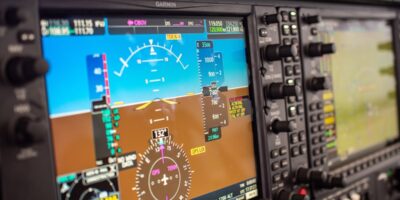Aerospace Approved Suppliers: What It Takes and Why It Matters
A buddy of mine works in quality assurance at a machine shop that supplies parts for commercial aircraft. Over beers one night, he told me about the hoops they jump through just to keep their aerospace approval current. Annual audits, paper trails on every single bolt, surprise inspections — the works. At first I thought it sounded excessive. Then he reminded me that those bolts hold airplane wings together, and suddenly it all made a lot more sense.

What Does “Aerospace Approved” Actually Mean?
Being an aerospace approved supplier means a company has passed a demanding evaluation process and demonstrated it can consistently produce parts and components that meet aerospace-grade standards. We’re talking about an industry where tolerances are measured in thousandths of an inch and a bad batch could have catastrophic consequences. The bar is high for good reason.
Certifications You Need to Know
Probably should have led with this, because certifications are the backbone of aerospace approval. The big one is AS9100, which is basically the aerospace version of ISO 9001. It covers quality management with added requirements specific to aviation, space, and defense. If a supplier doesn’t have AS9100, they’re not getting through the door at most aerospace companies.
Then there’s NADCAP — the National Aerospace and Defense Contractors Accreditation Program. This one’s a global cooperative that standardizes quality processes across the industry. Getting NADCAP accreditation means a supplier has passed rigorous audits of their specific processes, whether that’s heat treating, welding, coatings, or something else. My friend’s shop spent almost a year preparing for their NADCAP audit. Passed on the first try, which apparently isn’t common.
Quality Control Is Everything
In aerospace, quality control isn’t a department — it’s a culture. Suppliers have to implement strict inspection and testing protocols. Every part gets checked, often multiple times at different stages of production. Nothing leaves the facility without documentation proving it meets spec.
Traceability is a huge part of this. Every finished product has to be traceable all the way back to its raw materials. If a problem shows up years later, the manufacturer needs to be able to figure out exactly which batch of material was used, who processed it, and when. It sounds like overkill until you realize that a single faulty component in an aircraft system could affect hundreds of lives.
How Suppliers Get Selected
Aerospace companies don’t just pick suppliers off a list. The selection process is thorough. Potential suppliers go through evaluations of their capabilities, equipment, workforce, and processes. It’s less “send us a quote” and more “let us spend a week in your facility.”
On-site audits are standard. Auditors walk the factory floor, review quality records, interview staff, and check that everything matches what’s on paper. They’re looking for consistency and discipline. A clean facility with well-maintained equipment and trained operators goes a long way. But the real test is whether the supplier can deliver the same quality on order number 500 as they did on order number 5.
Approval Is Just the Starting Line
Getting approved doesn’t mean you can relax. Aerospace companies monitor their approved suppliers continuously. Regular audits happen — sometimes scheduled, sometimes not. Performance metrics get tracked. Delivery times, defect rates, corrective action responses — it’s all on record.
If a supplier starts slipping, they hear about it quickly. And if they can’t correct course, they can lose their approved status. That might sound harsh, but when you’re making parts for aircraft, there’s really no room for “good enough.” That’s what makes aerospace supply chains endearing to engineers — the relentless commitment to getting it right.
Technology in Aerospace Manufacturing
Technology has changed what’s possible for aerospace suppliers. CNC machining allows for incredibly precise, repeatable production. Additive manufacturing — 3D printing, basically — is opening up new possibilities for complex geometries that would have been impossible or prohibitively expensive to machine traditionally.
On the quality control side, tools like 3D scanning and automated inspection systems have improved accuracy while reducing the chance of human error. A coordinate measuring machine can check a part against its CAD model in minutes and catch deviations that a human inspector might miss. These aren’t cheap investments, but they’re becoming table stakes for serious aerospace suppliers.
Why Suppliers Want This Approval
So why go through all this trouble? Because the payoff is real.
Approved suppliers get access to long-term contracts with major aerospace companies. Boeing, Airbus, Lockheed Martin, Pratt & Whitney — these are customers that bring stability. Once you’re in their supply chain and performing well, the relationship tends to last.
Being approved also opens doors for new projects. When a new aircraft program needs suppliers, companies with existing approvals get first consideration. It’s a competitive advantage that compounds over time.
And there’s an internal benefit too. The discipline required to maintain aerospace approval pushes companies to constantly improve. Better processes, better training, better equipment. It raises the entire operation.
The Tough Parts
I won’t sugarcoat it — becoming aerospace approved is expensive and time-consuming. The certification process alone can take months and cost tens of thousands of dollars. Smaller shops sometimes struggle to absorb those costs while keeping their regular business running.
Maintaining approval requires ongoing investment. You need dedicated quality staff, up-to-date equipment, and a willingness to drop everything when an auditor shows up. The regulatory environment also changes, so what was sufficient last year might need updating this year.
And the risk of losing approval hangs over everything. A quality escape — an out-of-spec part that makes it to a customer — can trigger a cascade of consequences. Corrective action reports, additional audits, potential suspension. For a small supplier, that can be devastating.
The Bigger Picture: Global Supply Chains
Aerospace approved suppliers don’t operate in isolation. They’re links in a global supply chain that ultimately puts aircraft in the sky. A single commercial airplane might have components from hundreds of different suppliers across dozens of countries. The approval system is what holds all of that together.
When every supplier in the chain meets the same standards, the end product — the aircraft — is safer and more reliable. It’s a system built on trust, but it’s trust backed by documentation and verification. Every single time.
Sustainability in Aerospace Supply
Environmental responsibility is becoming a bigger factor in supplier evaluations. Aerospace companies are increasingly looking at their suppliers’ environmental practices — energy usage, waste management, material sourcing. Some are making sustainability metrics part of their scorecards.
Suppliers that adopt greener practices — reducing waste, improving energy efficiency, using recycled materials where specifications allow — position themselves better for future contracts. It’s not just about doing the right thing anymore, though it is that too. It’s becoming a business requirement.
Where This Is All Heading
The future for aerospace suppliers is a mix of opportunity and pressure. New materials like advanced composites and high-performance alloys are expanding what’s possible. Digital manufacturing tools are improving precision and reducing lead times.
Digital transformation is picking up speed across the supply chain. Model-based definition, digital twins, connected factory floors — suppliers who embrace these tools will have an edge. But with greater connectivity comes greater cybersecurity risk, and that’s something the industry is taking very seriously.
Sustainability will keep pushing the conversation forward. And collaboration between suppliers, OEMs, and research institutions will drive the next generation of aerospace innovation.
It’s a demanding industry with high stakes. But for suppliers who can meet the standard, there’s real reward in knowing their work literally helps keep people safely in the air. That’s not a bad thing to build a business around.



